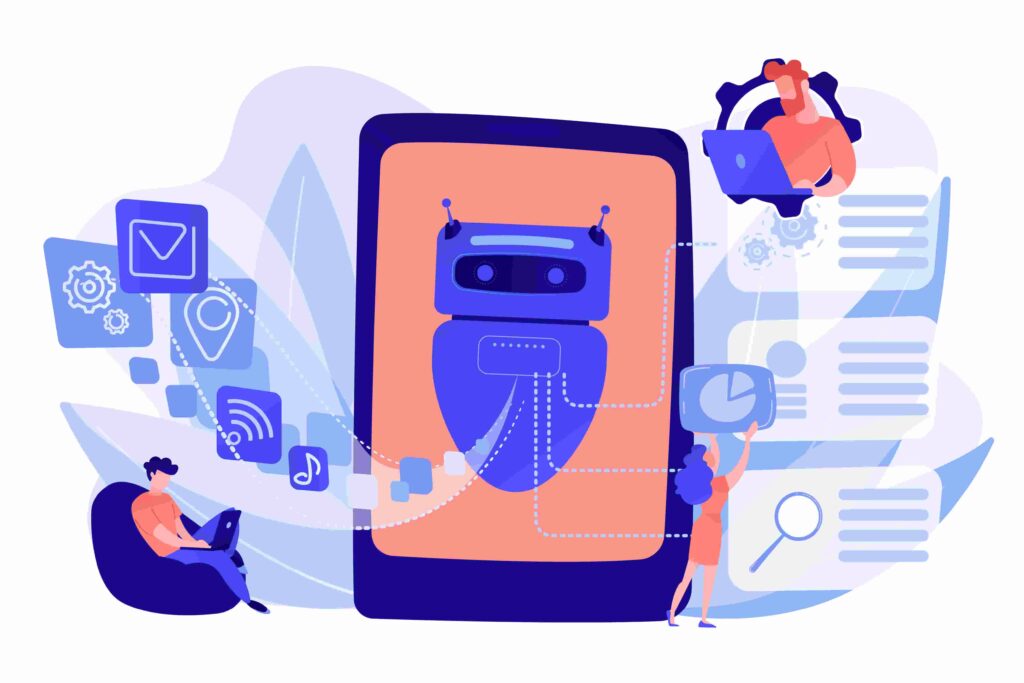Do you know how disorganized customer service can affect your business? Can you tell if your customer service department is disorganized?
From losing valuable customers to damaging your brand reputation, poor customer service is not just a matter of operational efficiency. It can become a direct threat to any company’s bottom line.
With that in mind, we’ve prepared this article to explore the tangible and intangible costs that disorganized customer service can incur. Read our tips to improve your processes and increase customer satisfaction and loyalty.
What’s the relationship between customer service and a company’s turnover?
One thing is certain: investing in a good customer service strategy has a direct impact on business profits. This is because proactive and effective communication has a direct impact on the customer experience, which in turn, is likely to result in increased sales and customer loyalty.
And, as you’ve already seen here, a good experience is more likely to result in increased sales and customer loyalty. After all, in today’s business world, fast and transparent service is one of the most important competitive advantages.
One example of the impact of customer service on sales is that well-served customers become loyal, leading to increases in a company’s turnover.
Also, when we talk about the relationship between sales and customer service, we need to mention that finding a new customer can be 5 to 25 times more expensive than retaining an existing customer. In other words, looking for strategies to keep your customers happy and buying from your company is cheaper than finding a new one.
How can disorganized customer service negatively impact your company’s turnover?
Disorganized customer service creates a negative experience for a company’s consumers and employees. By “disorganized customer service,” we mean:
- Slow customer service;
- Rework;
- Low resolution rate;
- Recurring customer contact about the same issue.
Therefore, bad service can lead to loss of recurring customers and revenue, as it doesn’t help retain customers.
Another aspect with a huge impact on any company is negative information about your brand, considering that most customers share their bad experiences with other people.
Other consequences of disorganized customer service include:
- Loss of profitability: unhappy customers tend stop buying or doing business with the company, leading to a reduction in the LTV (lifetime value, a metric that estimates the revenue a customer will generate for a company over a given period of time);
- Damage to the company’s image: bad publicity has a negative impact, especially on people who may become customers in the future;
- Loss of competitive power: when your company doesn’t provide satisfactory solutions to customer inquiries, consumers still have needs to be met, which can be done by potential competitors;
- Increased expenses: if a customer receives poor customer service during the buying journey, everything your company has invested in acquiring customers will be lost, not to mention that you will have to spend more to find new customers.
How can disorganized customer service negatively impact customer experience?
As you’ve seen, disorganization in customer service can have a deep and multifaceted impact on the customer experience. It compromises customer satisfaction, loyalty and, ultimately, the decision to continue doing business with your company.
This is because disorganization leads to long wait times, poor proactivity, low resolution rates, and the need to repeat the same information several times, for example.
Lack of organization can also cause frequent errors, such as incorrect orders or conflicting information. All these situations can indicate to customers that they are not important, which reduces trust in the company.
What are the signs that customer service is not working well and can affect business results?
The most important sign of disorganized customer service is a reduced net promoter score (NPS) – which measures customer satisfaction in a survey that can be conducted at the end of the service or after updates.
When this score falls, it’s important to pay attention. However, there are other customer service indicators that can help identify that your area is not performing well, including high rates of average wait time, average service time, and average resolution time.
These high rates are usually the result of a failure to prioritize customer requests or excessive inquiries for the team to handle. Either way, they lead to customer dissatisfaction and can impact the company’s financial results.
In addition to these customer service performance indicators, there are other metrics that can indicate your customer service is not working well and can affect business results, such as:
- High churn rates;
- Reduced LTV;
- Increased CAC (customer acquisition cost);
- among others.
How can you improve service processes and reduce costs?
In addition to measuring the quality of customer service, you need to know how to improve service processes in order to reduce costs. To do this, you need to understand all the steps that the customer and the team go through before a customer request is completed.
With this analysis, you can understand the main needs of the department. For example, an overloaded department can invest in FAQs and chatbots, which automatically resolve Level 1 requests.
This way, human agents can answer a smaller number of calls and handle complex requests. On the other hand, if you’ve identified that the main problem of your customer service is disorganization and high costs from different management software tools, maybe it’s time to unify all processes in one place.
With Milvus, it’s possible not only to centralize requests – such as WhatsApp, Telegram, phone, email, chat, form and more – but also to intelligently organize their distribution among service desks. It can also be implemented when more than one department uses service channels.
Milvus also provides a real-time view of key team performance metrics, as well as individual metrics. The platform also offers automation, artificial intelligence and chatbot tools integrated into the same system, increasing the productivity of the current team.







